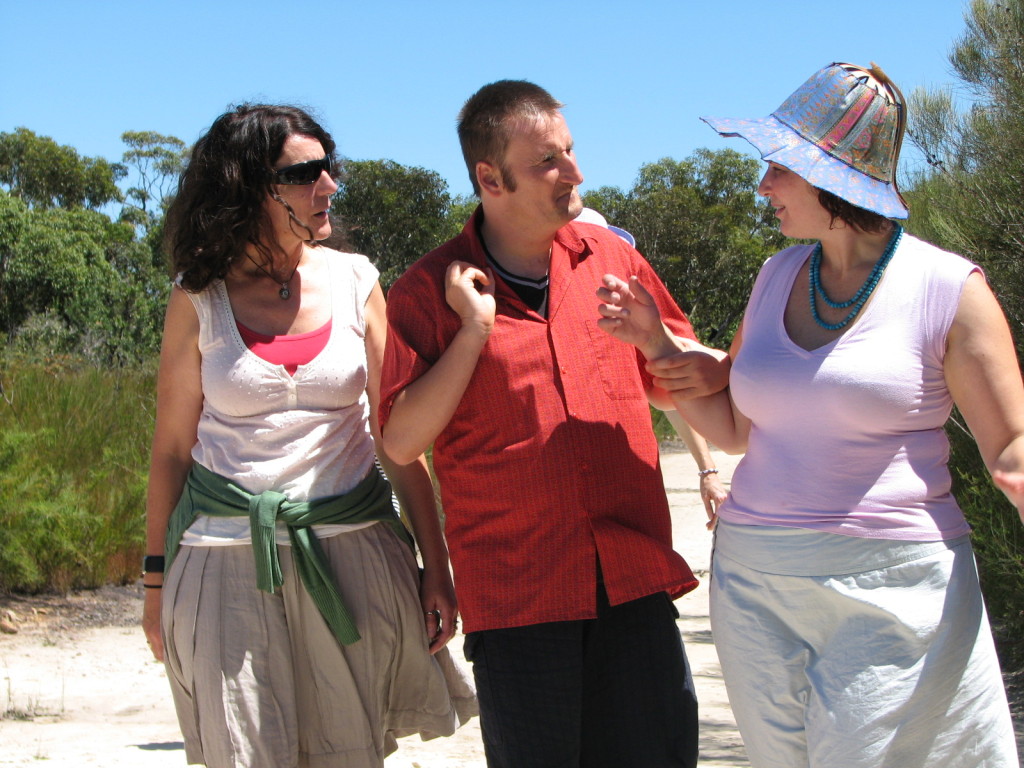 Really good paid support is a key aspect of taking more control, being able to get on with your life and sustaining effort in self direction. Attracting, inviting and supporting the ‘right’ people is crucial to wellbeing and also the wellbeing of families.
Really good paid support is a key aspect of taking more control, being able to get on with your life and sustaining effort in self direction. Attracting, inviting and supporting the ‘right’ people is crucial to wellbeing and also the wellbeing of families.
The right people are more likely to step forward when you are really clear on the purpose of paid support. Additionally, people are more likely to stick around when they are fully informed of the expectations and when they understand and share your vision. Unspoken or hidden expectations tend to lead to disappointment and to unnecessary turnover.
Start at the end
Asking the question, ‘What is the end result I am looking for?’ is a really great way to start thinking about purpose.
The importance of such a question can be revealed in exploring this scenario. Consider someone who likes gardening. You might consider matching paid support to this interest and conclude that finding a gardener is the way to go. Taking some time to consider purpose, however, can reveal some interesting differences. If the purpose of the role is to build a garden, finding a gardener might work. But if purpose is to increase opportunities for connection to others through this interest, a person only skilled in gardening may not cut it (excuse the pun).
Here are some other ideas to assist your thinking.
Think about how others get the task done
Ask: how do other people get this thing done or achieve this?
Firstly, think about the task that needs to be done. Now think about how that same or similar issue is solved by other people. How do others in our community get this kind of thing done?
This gives us some great clues on what we want to model and replicate. Sometimes we tend to jump to service and paid responses first. But asking this question allows us to take a breather and see if there are other solutions we could put our energy into (the time and energy we would be using to find paid assistance or service solutions).
So give these scenarios some consideration in light of this:
- You’ve lost track of time and now your garden is in need of a makeover.
- You need your lawn mowed regularly
- you have never tried mowing a lawn before and aren’t sure if you could do it.
- you could learn but you aren’t interested and prefer to dedicate time elsewhere
- you aren’t able to mow your lawn
What are different solutions to these scenarios?
Generally the more formal, regular and structured the task is, the more likely it is in our society, to seek a paid solution. But a lot also depends on our family culture, background, gender, the place you live, income, age…… So think about what makes sense to you.
I know in my life, I would be more inclined to turn my dishevelled garden into a social opportunity, provide food and drink or even offer to assist friends with something in exchange for their help. Our lawn is large. I can learn to mow but I’m not interested in mowing. However, this is not something I think is reasonable to ask a friend or neighbour to do on a regular basis. Sure – collect my mail, feed my cat for a couple of days. But not mow the lawn regularly. A neighbour might offer because we have built a reciprocal relationship, but this is different to me asking. Additionally our living expenses mean that getting someone else to do this regularly is not possible. So I need to mow my lawn. But you might have a different response that fits your culture, family, income, community etc! It’s the process of thinking through that is important.
This kind of thinking helps us understand the place of paid support, whether it is actually needed, and also helps us think about the place of informal relationships and whether we could focus energy on this rather than on paid support.
So ask yourself: what can a paid person bring that natural support might not bring? How can paid support add value to what I already have? (not take away or cut off an opportunity for growth of other kinds of relationships)
Regularity, structure and formal teaching are some examples of answers to these questions.
Some other examples are:
- Social connection/bridge building into different parts of a community
- Building a fuller picture of who the person is: helping the person learn more about themselves, trying different activities, exploration and trial. This can be important for people whose interests are unknown or unexplored
- Learning new skills
- Personal care
- Role modelling and mentoring – behaviours, feelings, thinking
- Generating new ideas – creative, innovative, considered ideas
- Team development – developing the cohesion and functionality of a team
- Work or business development
Clarity on role and purpose really helps us to hone the characteristics we are looking for in people. What qualities, skills and interests are we looking for in people? Let’s look at that next.
We’d love to hear your thoughts on successful techniques.
If you want to learn more, join us for our upcoming webinar on December 9 2014!
Click here to hear what a participant has said about our sessions.
Leave a Reply